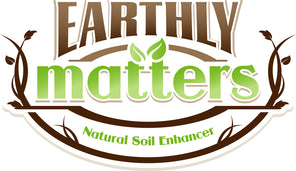Education – June 23, 2023
Our Partner Eco Health Industries
Earthly Matters is passionate about the world of vermiculture and the amazing benefits it brings to sustainable agriculture. That's why we want to share with you Eco Health Industries, a company dedicated to blending organic wisdom and modern green chemistry for the betterment of our plants and soils. Eco Health Industries has a range of innovative products that can benefit all forms of gardening and farming, from home gardeners to professional growers. Their Biological Method feeds both your plants and soils, fostering a connection that is key to efficient and healthy growth. The Biological Method and Its Benefits The Biological Method, developed by Eco Health Industries, blends the wisdom of ancient organic practices with the best of modern green chemistry. It's a way of growing that's not just beneficial for your plants, but also for the soil and the environment. This method helps you grow sustainable ecosystems, irrespective of whether you're a full-time professional grower or a passionate home gardener. A Variety of Programs and Products Eco Health Industries offer a range of products for all plants and trees, veggies and flowers, and even ponds and water features. Their products improve the effectiveness of your vermiculture products by enhancing the soil's microbial life and nutrient content. Infiltr8 Soil Aggregation Solution: Pioneering Soil Structure Rehabilitation Tailored to restore soil structure and ensure optimal water infiltration rates, Infiltr8 marries the potency of soluble calcium, microbial metabolites, and soil penetrants. The result? Soil health that's revitalized, allowing for efficient root growth and nutrient availability. Dive deeper into understanding the intricate dance between soil flocculation and deflocculation, and let Infiltr8 guide your soils to their prime potential. Phosaxe Phosphorus Nutrient Adjuvant: Maximizing Phosphorus Efficacy Phosphorus stands as a foundational component for plants, aiding energy transfer and metabolic functions. Phosphorus, although present, isn't always accessible to plants due to various soil conditions. Phosaxe Phosphorus Nutrient Adjuvant enhances phosphorus uptake, ensuring that what's applied to your crops isn't going to waste. Beneblend Plant Probiotics: Elevating Plant Vitality Designed to restore and boost both soil and plant health, this formula introduces a plethora of beneficial microorganisms to plants' vital microbiomes, whether above or below ground. Witness as symbiotic mutualism flourishes in the roots and leaves, paving the way for resilient and sustainable farming. Keyl8 Soil Prebiotic: Harness the Secrets of Nature Mimicking natural plant root exudates, Keyl8 Soil Prebiotic is a game-changer for promoting the growth and vigor of beneficial soil microorganisms. When paired with the Beneblend Plant Probiotics, it's like giving your soil a luxury spa treatment! Regenr8 Foliar: The Future of Regenerative Agriculture Packed with organic acids, amino acids, and fulvic acid, Regenr8 Foliar not only supplements nutrient needs but acts as a catalyst, ensuring plants receive their vital nourishment efficiently. Hydr8 Soil Physical Properties Amendment: Tailored Perfection for Specialized Soils For those managing vineyards or orchards, the struggle with soil structure or water retention is all too familiar. That's where the Hydr8 Soil Physical Properties Amendment steps in. By leveraging a unique blend of zeolite, biochar, and humic substances, it aims to restore soil health, enhance structure, and champion sustainable cultivation.
